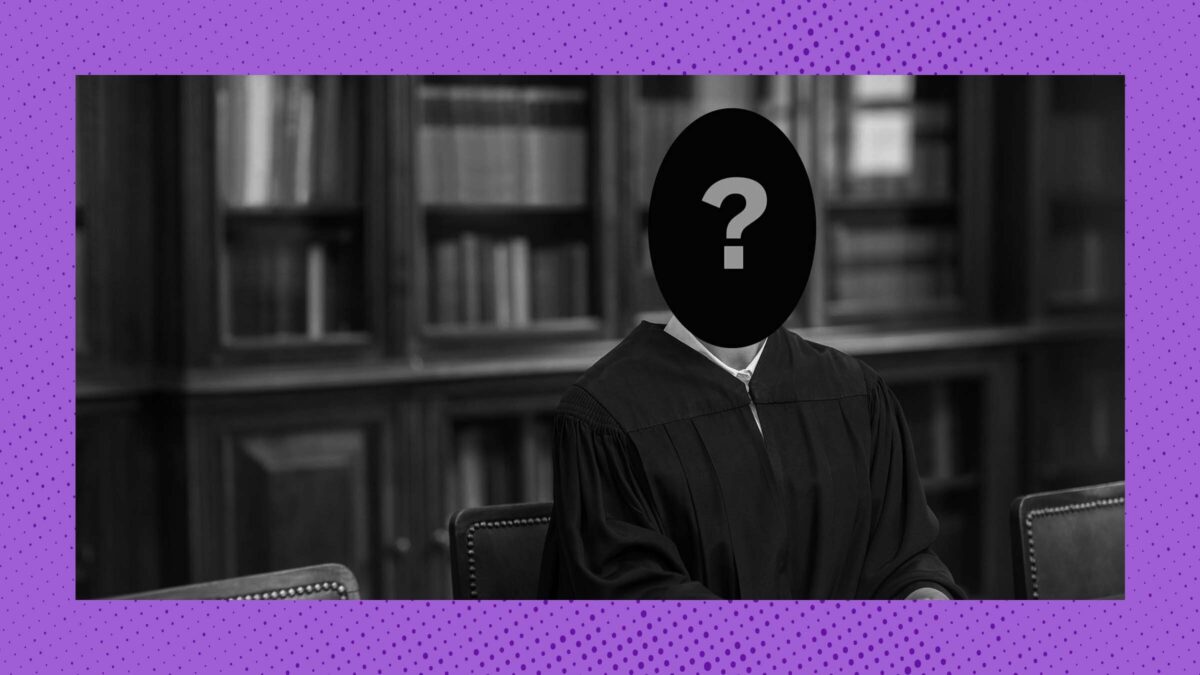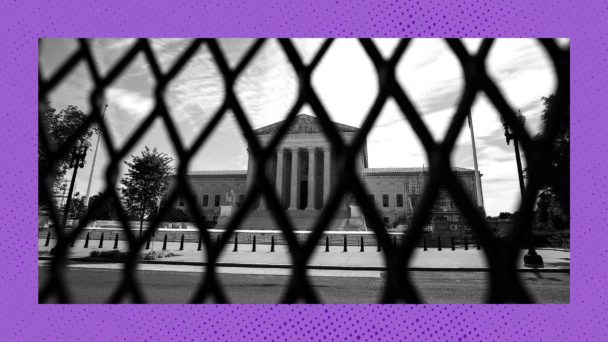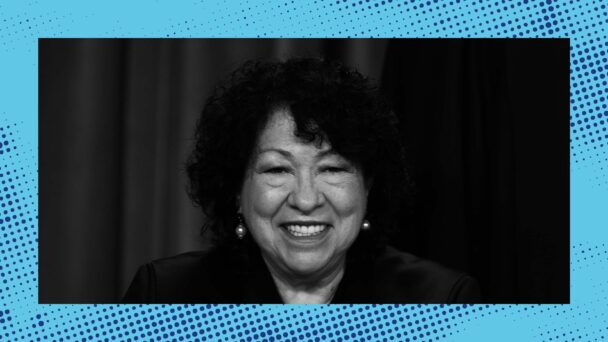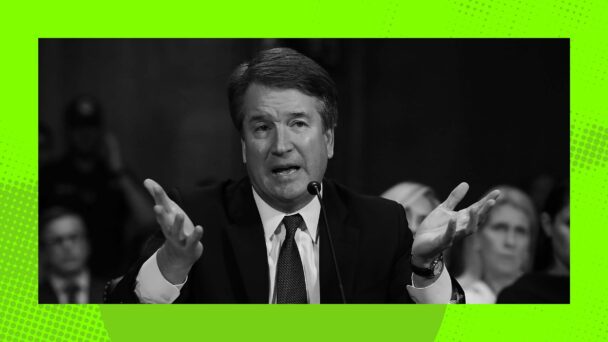Last week, The Washington Post’s Ruth Marcus wrote a column defending a pretty standard convention in legal media: when an article references a federal judge, the writer notes the president who appointed them, too. She did so in response to an email she received from an unnamed federal appeals court judge who was nominated by President Ronald Reagan. It reads as follows:
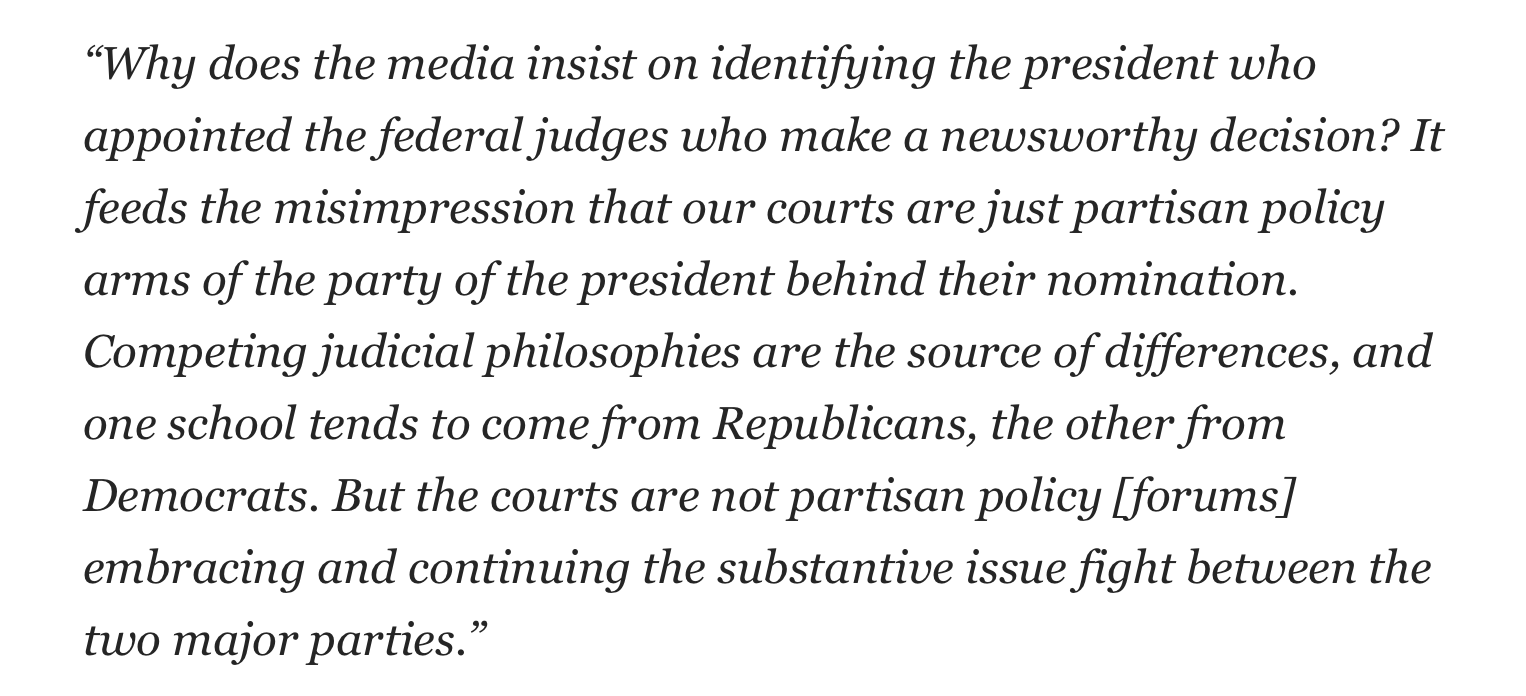
This paragraph contains several wrong statements, all of which will be apparent to anyone with a passing familiarity with the myriad accomplishments of the Supreme Court’s conservative supermajority, to say nothing of the decades that preceded its formation. Marcus addresses these contentions in turn, citing research by Harvard Law School professor Alma Cohen on how political affiliation helps predict judicial outcomes, sometimes when it comes to issues that are obvious (abortion access, gun safety) and sometimes maybe less so (criminal appeals, immigration cases).
Marcus acknowledges that no judge of any ideological persuasion wants to be seen as “doing the bidding of political allies.” But, she says, given the demonstrated relevance of a president’s party affiliation to how their judicial appointees treat the rights of millions of people, journalists who omit this information from their reporting do their audience a disservice.
“Who becomes president makes a difference, not just for the Supreme Court but for lower courts as well,” Marcus writes. “As much as we might prefer it to be otherwise, party matters.”
This is correct and, in my view, pretty uncontroversial. Journalists identify judges’ appointing presidents all the time, especially when it comes to lower court judges whose names readers might not recognize. As I’ve written before, I think reporters should dispense with this stilted language altogether and simply refer to judges as “Democrats” and “Republicans.” When partisanship best explains how judges wield political power, euphemism serves only the interests of those who insist that they are really doing something else.
But set aside, for a moment, the eternal debate about the extent to which judges deserve the dreaded “partisan hacks” label, because I am also curious about the eyebrow-raising assertion that prompted the column in the first place. Right now, Americans have the privilege of spending every June waiting to learn which rights the Supreme Court has elected to take away from which people. Against the backdrop of this grim annual tradition, which sitting federal judge believes an appointing president’s party is so clearly irrelevant that legal journalists misinform their readers by even mentioning it?
For fun, I tried to find out.
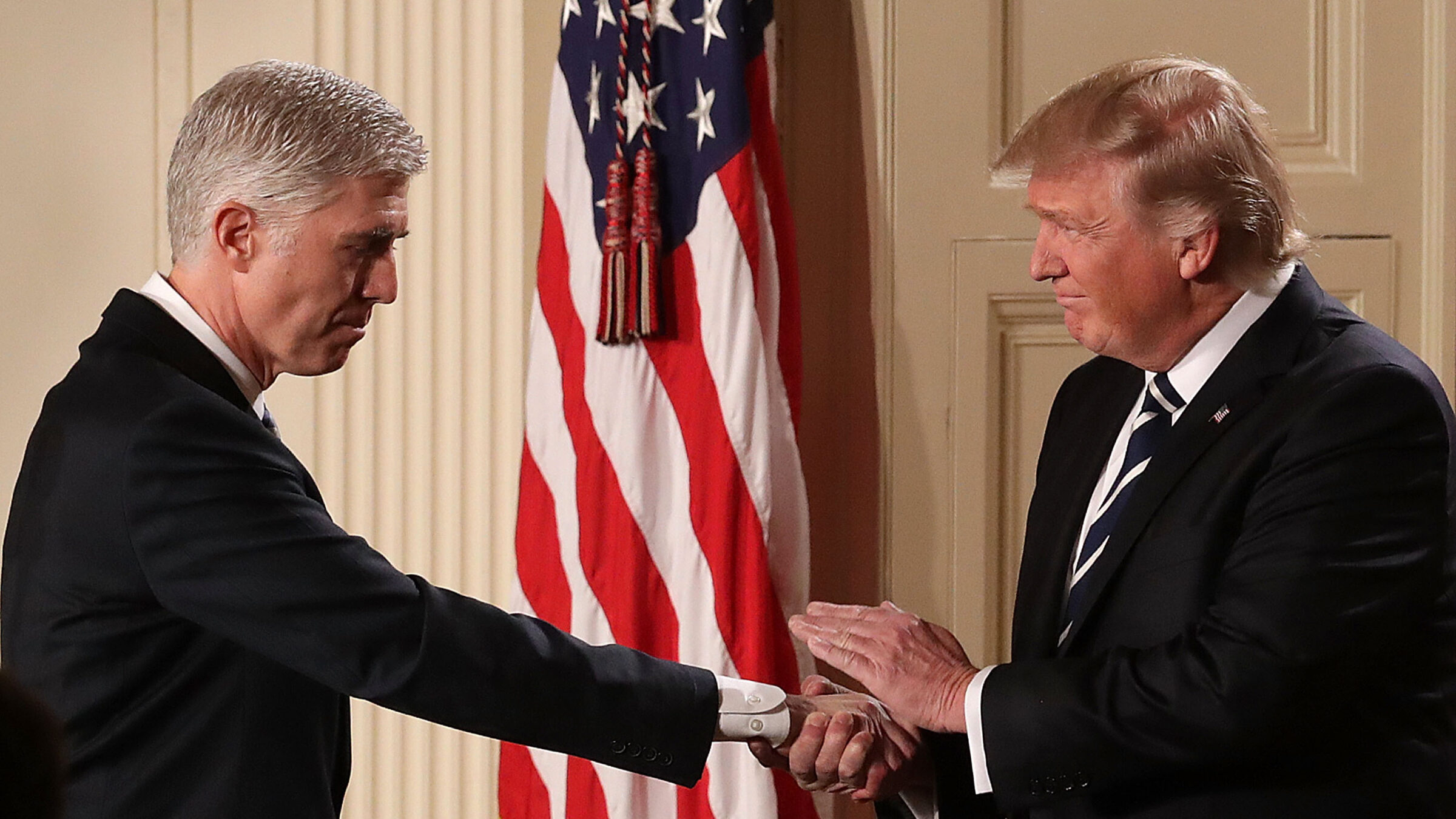
Possibly relevant information, possibly not, who can say, really (Photo by Chip Somodevilla/Getty Images)
The list of suspects isn’t very long. Of the 35 Reagan appeals court judges still on the bench, only five are active, and many took senior status decades ago. So I reached out to the chambers of 15 judges—four of the five active judges, plus all those who took senior status in the past decade, plus all those who sit on courts in Washington, D.C., regardless of when they went senior—and asked if they wrote the email. (I excluded Federal Circuit Judge Pauline Newman, 96, who was suspended in 2023 following an investigation into her fitness for service.)
Most judges, consistent with members of the profession’s reluctance to talk to reporters about anything, did not respond at all. I heard back from six: Through chambers, Fifth Circuit Judge Edith Jones declined to comment, as did Roger Wollman, an Eighth Circuit judge who went senior in 2018. Senior Federal Circuit Judge Haldane Mayer denied writing it; so did Senior First Circuit Judge Bruce Selya; so did Senior Sixth Circuit Judge Danny Boggs, although he told me in an email that “it does sound like things my wife often says after reading press accounts.”
More than one office seemed mildly shocked even to be hearing from a reporter with a question. When I called the chambers of one senior judge with a well-earned reputation as a conservative culture warrior, the clerk who answered the phone promptly gave me his cell number and warmly encouraged me to call. Based on the judge’s tone during our subsequent conversation, I am guessing this is not something the clerk was supposed to do.
In the end, no one copped to its authorship, which means I can do no better than an educated guess. There is a Reagan appointee who occasionally writes columns of his own for The Washington Post, many of which warn against blurring the putative line between law and politics. In 2009, for example, Fourth Circuit Judge J. Harvie Wilkinson III cautioned Senate Democrats against rushing to flip his court, which, he wrote, “has never prided itself on ideology, but on the collegiality that takes minds out of concrete and prevents personal animosities from clouding and distorting the essential act of judgment.” In 2013, he emphasized the importance of judges separating “legal duty from political conviction,” and praised his Democratic colleagues as “without exception men and women of the highest legal talent and of a thoughtful and reflective approach to the law.” In 2021, he worried that Supreme Court term limits would “make the institution appear more, not less, political in the eyes of the public.” And in 2023, he celebrated the issuance of a stamp honoring the late Justice Ruth Bader Ginsburg, writing that despite their disagreements, her life was a reminder that “simply having different views and leading a different life make no one less of an American than any other.”
Similar sentiments sometimes appear in his opinions, too. In his dissent in a 2018 decision allowing a lawsuit against President Donald Trump to go forward, for example, Wilkinson emphasized judges’ solemn duty to act responsibly when “partisan fever grips the national government,” and to refrain from acting as “partisan warriors in contradiction to the rule of law that is and should be our first devotion.”
Alas, Wilkinson did not respond to my requests for comment for this story. Legal journalism’s least consequential mystery thus remains unsolved.
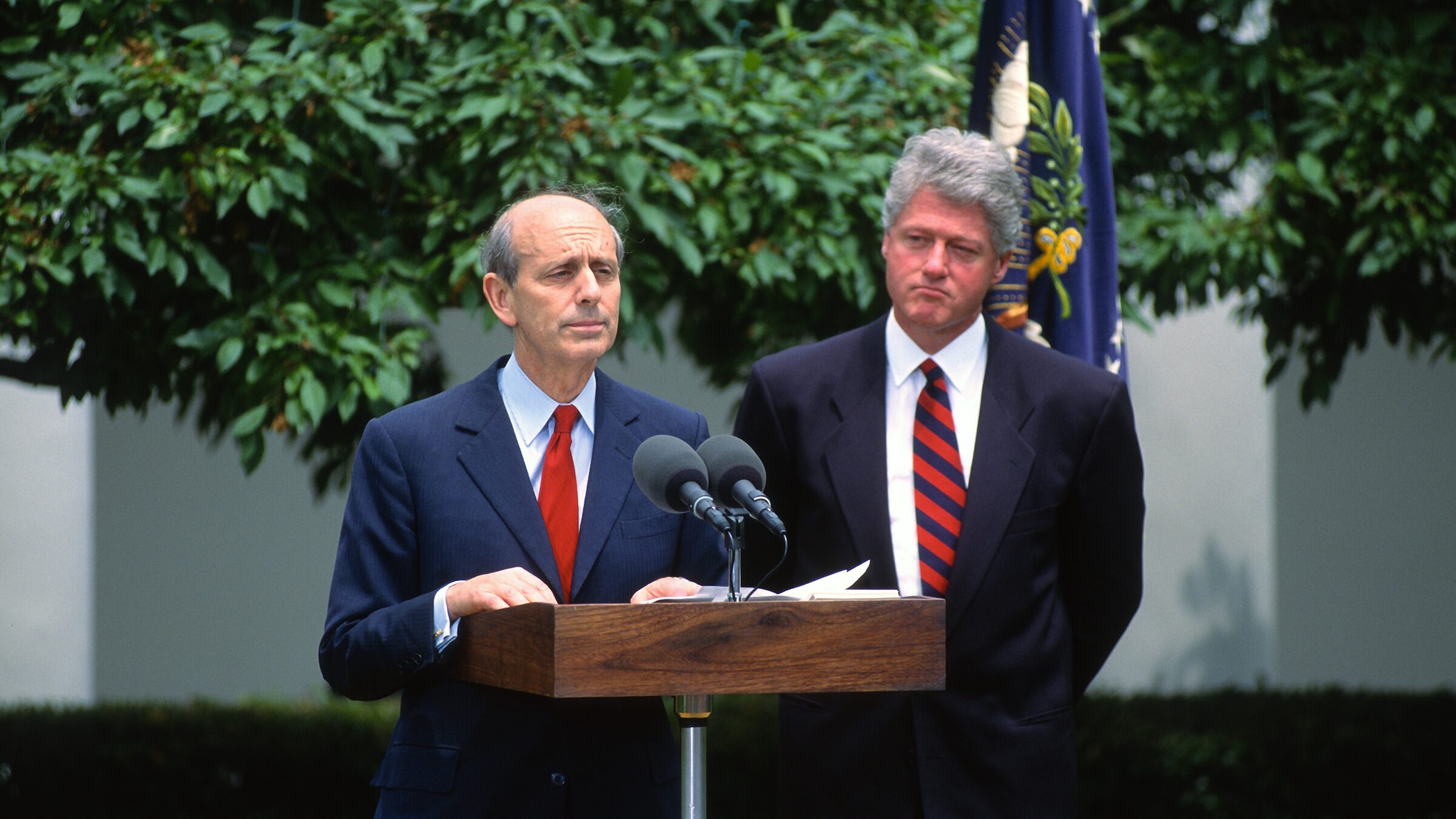
Justice Stephen Breyer (L) and some guy (R) (Photo by Ron Sachs/CNP/Getty Images)
In any event, the identity of the writer here is less important than what they wrote, and what it suggests about how members of America’s juristocracy think things are going right now, in the real world, outside the confines of their tastefully decorated chambers. Judges are fond of the maxim that they “do law, not politics”—that whatever they may privately think about a case has no bearing on its disposition. For anyone who has not incurred six figures of debt to join the legal profession, this is silly bordering on fantastical. Judges are not imbued with some magical ability to set aside decades of accumulated experiences, biases, perspectives, and preferences the moment they bang the gavel. They are, in other words, people, and it is good—necessary, even—for journalists to treat them as such.
If the composition of the federal bench were really as irrelevant to politics as this judge imagines, politicians would probably not have spent decades fighting so hard for control of it. My hunch is that when it comes to the modern public perception of judges as politicians in robes, judges voting in borderline-lockstep with their ideological allies whenever the stakes are highest are more blameworthy than, say, Supreme Court reporters who sometimes use the phrase “a Trump appointee” when recapping oral argument.
Unfortunately, unless the mystery judge reads this blog post and returns my call, there is no way to know how he or she would respond to Marcus’s arguments, or to mine, or to those of anyone else who cares about this stuff. On the rare occasions that they do speak outside the courtroom, judges typically limit themselves to general observations, milquetoast platitudes, and generous praise of the law school debate club that paid for their airfare. This abundance of caution extends even to nominees, whose primary goal in a Senate confirmation hearing is saying fewer words than the nominee that came before. Several of the chambers I contacted agreed to pass along the message, but politely warned me that their judges almost never respond to media requests. One clerk said that her judge “does not comment on anything.”
Again, I understand why and how this norm developed, and its application to questions about pending cases, at least, is pretty straightforward. Otherwise, I am not sure a system in which life-tenured members of the least accountable branch answer only to sympathetic audiences, and only the questions they want to answer, and only in formats they’re comfortable with, and only when they feel so moved, is good for anyone but the judges protected by it.
The public would benefit from hearing more from this judge, perhaps outside the structure of a prominent legal journalist’s column: how he (or she!) squares this perspective with, for example, the reality of a Republican-controlled Supreme Court fulfilling more Republican policy goals with each passing summer, and at what point, if any, he (or she!) thinks that attributing differences to “competing judicial philosophies” and not the parties that “tend” to favor them is a distinction without a difference. The public would benefit if all judges—people who are entrusted with a ton of power, and are otherwise not special or different from anyone else—were a little more candid about how they view the world and their place of privilege in it. I’ll keep my phone on, I guess.
